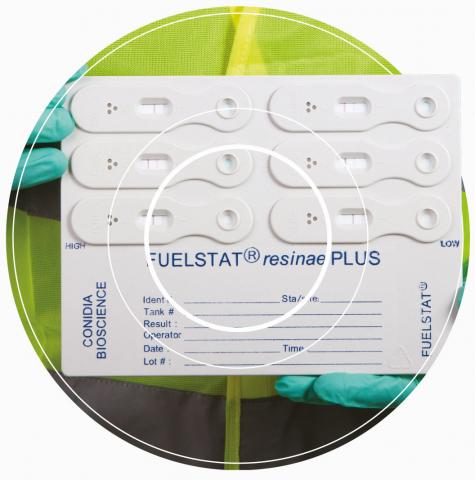Conidia Bioscience point out that even marine vessels aren't safe from microbial contamination and that regular maintenance should be performed on fuel

Egham, United Kingdom - December 20, 2021 /PressCable/ —
Each and every year, there are numerous sea vessels that experience both technical and mechanical problems caused by fuel contamination. Fortunately, in most of these cases, the fuel used was on-spec and didn’t contain dangerous levels of contamination upon uploading; however, microbial contamination can grow very rapidly in such a short period of time, making it important to test marine fuel as early as possible.
Conidia Bioscience’s fuel-testing kit can test for the presence of these microbes and help sea vessel owners determine a problem with their fuel or tank as early as possible.
Back in 2020, the IMO regulations changed to stop manufacturers from using high levels of sulfur in their products, because the presence of sulphur in fuel increases the rate of contamination. MGOs need to adhere to these changes and conduct much more regular fuel testing.
The primary microbe present in contaminated fuel is often referred to as ‘diesel bug’, or for the Latin-heads out there, filamentous fungi Hormoconis resinae. Microorganisms are found virtually everywhere; there is no escaping them, especially where fuel is concerned. They enter through the air and water and can feed on the components and additives or even the hydrocarbons present within fuel.
For a number of years, industry specialists have recommended minimising water in order to tackle the diesel bug problem. While this advice is very much valid today, it is difficult to effectively remove water from diesel and any MGO that contains biofuel—biofuels especially, as they often contain FAME. No, they aren’t rock stars; FAME simply stands for Fatty Acid Methyl Esters, which are extremely hygroscopic (meaning biofuel absorbs and holds water more than traditional mineral diesel).
To find out more about diesel bug and how it affects marine vessels, or to see more about Conidia’s fuel testing kits, please see the following URL: https://conidia.com/
Contact Info:
Name: David Mitchell
Email: Send Email
Organization: Conidia Bioscience Ltd
Address: Conidia Bioscience Ltd, Bakeham Lane, Egham, Surrey TW20 9TY, United Kingdom
Phone: +44-1491-829102
Website: https://conidia.com/
Source: PressCable
Release ID: 89057312
